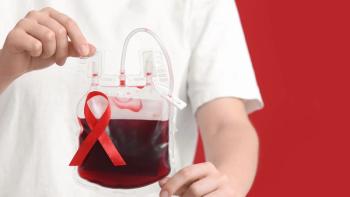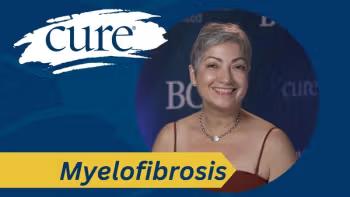
- Hematology Special Issue 2018
- Volume 1
- Issue 1
Patients with MPNs Willing to Alter Diet, Supplement Use to Alleviate Symptoms
Nutritional change may be a potential strategy to improve symptom burden and inflammation in patients with MPNs, whohave increased inflammatory cytokines, which contribute to symptoms such as fatigue, night sweats and bone pain, as well as low cholesterol and weight loss related to nutritional deficiencies.
DIET AND SUPPLEMENT USE can help alleviate some of the symptom burden experienced by patients with myeloproliferative neoplasms (MPNs), according to a study conducted by Mayo Clinic researchers.
Patients with MPNs have increased inflammatory cytokines, which contribute to symptoms such as fatigue, night sweats and bone pain, as well as low cholesterol and weight loss related to nutritional deficiencies.
To examine the habits, needs and preferences among this population, researchers used an internet-based survey through the Mayo Clinic Survey Research Center and promoted it on many MPN-focused websites and communities in February 2017. The survey included data on demographics, disease characteristics, nutritional habits, supplement use and symptom burden using the Myeloproliferative Neoplasm Symptom Assessment Form and Total Symptom Score.
The 1,329 patients who responded to the survey represented 37 countries and had the following types of disease: myelofibrosis, 24 percent; polycythemia vera, 37 percent; and essential thrombocythemia, 38 percent. Of those patients, 1,131 consented to taking the survey. The average total symptom score was 31.
Survey results showed that 34 percent of patients endorsed using diet to help control their symptoms or disease, 23 percent had food allergies or intolerances and 31 percent followed a specific or restricted diet.
Nearly all patients who responded (96 percent) said they would be willing to eat only certain foods if it helped to control symptom burden, stabilize their disease or reduce the risk of it worsening (98 percent). Over-the-counter supplements were used by 72 percent of patients, more often by women (74 percent) than men (66 percent).
Supplement users also were more likely to be older, have lower self-reported body mass index and engage in at least 30 minutes of physical activity.
Lower symptom score was associated with alcohol intake, baked foods, dairy and pasta; higher score, with fast food, premade snacks, soda and refined sugar. Symptom burden was significantly lower among patients using amino acid supplements and N-acetylcysteine, but significantly higher in those taking Bach flower remedies.
Editor’s Note: This article originally reported on study results from the American Society of Hematology Annual Meeting. After it was posted, it was brought to CURE’s attention, the conclusions were to be amended, and reflective upon the survey results presented. While nutritional change may be a potential strategy to improve symptom burden and inflammation in this patient population, no causal relationship has been confirmed through this study. The researchers are currently undertaking efforts to look at the role of prospective dietary change in symptom burden.
Articles in this issue
almost 8 years ago
CAR-T Cell Therapy: What We Never Dreamed Ofalmost 8 years ago
For Patients, Social Media Provides Perks and Perilsalmost 8 years ago
Better Outcomes in High-Risk Multiple Myelomaalmost 8 years ago
After 40 Years, Acute Myeloid Leukemia Gets 4 New Treatmentsalmost 8 years ago
The Future of Frontline Treatment in Hodgkin Lymphomaalmost 8 years ago
Lab of Plenty: New Drugs Bring Hope for AML Treatmentalmost 8 years ago
Building an Army to Fight Blood Cancer



